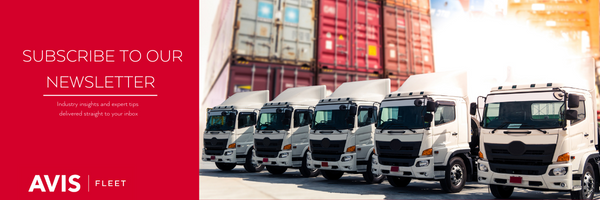Is it better to offer a car allowance or company car for your fleet? While both have pros and cons, you should always consider the most cost-effective solution for your fleet.
Although not an easy decision, fleet managers should opt for the best and most efficient solution based on their company’s requirements.
COVID-19 and economic uncertainties have far-reaching consequences like fuel, tax, and higher maintenance costs. This all needs to be considered when deciding between a company car and travel allowance.
Let’s examine both options in detail.
1. What is the difference between car allowance vs company car?
Anlo Financial Solutions says, “[With a car allowance], an allowance is paid to an employee for the use of their own private vehicle and is added onto the employee’s salary. The Gross salary paid to an employee is affected by the travel allowance.” They continue, “[With a company car], the company buys a car that is used by the employee for business and private use. The car is an asset to the company and does not belong to the employee. Fringe benefit tax is paid on the private element of the use of the motor vehicle.”
With the company car option, the company manages the full costs of maintenance, insurance, financing, and often fuel. The company owns the vehicles, but the employee gets taxed for the use of the company car.
With a car allowance, however, the employee is responsible for the costs of insurance, fuel, maintenance, and financing, but gets compensated for business travel. One of the biggest challenges for companies is to prove and manage that the car allowance granted to the driver is used for the purpose intended. Further, employees will often buy a vehicle for less than what the car allowance allows, thus the driver is benefiting from extra money in their pocket and the company is not getting the benefit of the full amount paid out by them on a monthly basis.
2. What option should you choose for your fleet?
Are you considering a car allowance? We recommend companies consult with their tax advisors. It is also up to the employer to decide if they tax employees on the vehicle value or the monthly rental and the % tax might differ based on the specific job profile. For example, salespeople travel often, whereas office-based staff don’t travel frequently or nowadays, work from home.
Are you considering a company car? The company can choose the range of vehicles their employees can choose from, giving them the opportunity to get a vehicle that is lower on fuel consumption and/or maintenance considering the Total Cost of Ownership. The driver is also given the benefit of a fleet discount that they will not necessarily qualify for as an individual.
Need help to decide? Chat to one of our experts today.
3. Which factors should be considered?
Fleet managers should consider the following:
- Cost-effectiveness: Running a company-owned fleet is more cost-effective as you’ll have lower maintenance, insurance, and fuel expenses.
- Employee productivity and talent retention: Providing a company car is a huge benefit for retaining and attracting new talent.
- Driver safety and vehicle policies: By managing a company-owned fleet, you can control the type of vehicles purchased and put relevant fleet policies in place to ensure driver safety.
Keeping the above in mind, it’s best to opt for a company car.
4. Should you buy or lease?
According to Automotive Fleet, “80% of companies with mid-to-large size fleets lease their vehicles, while only 20% exclusively own their vehicles.”
There isn’t a one-size-fits-all solution for companies, however, there are benefits involved when choosing the leasing option.
- The driver is taxed on the company car vehicle value and Avis Fleet provides a Fringe Benefit Tax certificate to the driver or payroll of the company for this purpose.
- Leasing provides the driver with a new vehicle more frequently in comparison to a car allowance individual that might drive a vehicle for 5-10 years. An aged vehicle with high mileage will cost more in fuel consumption and be more expensive to maintain in an excellent running condition once the vehicle goes out of service plan and warranty.
- The company’s payroll handles one set of rules for all vehicle benefits if leasing applies and thus, streamlines the process. Benchmark values can be set per job grade and maintained.
Outsourcing fleet management makes business sense
- Monitor fuel usage
- Manage vehicle incidents and accidents
- Locate your vehicles through tracking if required, and address bad driving behaviour pro-actively.
- The fleet manager has more control and has the right to access any information regarding the vehicle.
- Leasing reporting, consolidation of information, one point of contact, and enhanced systems and support benefit the customer.
- With a Full Maintenance Lease solution, every aspect of fleet management is taken care of for you.
Whichever option you choose, always consider your fleet policy and your company's needs and requirements.
If you’d like more information on company cars vs car allowances and how to reduce costs in your fleet, download our eBook here:
Subscribe to our monthly newsletter by clicking the image below, we share our latest industry insights and expert tips delivered straight to your inbox.






